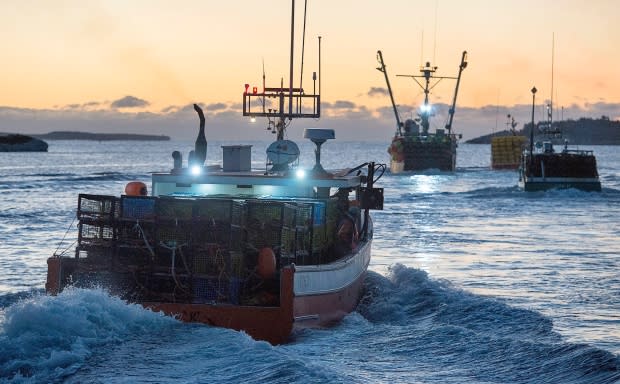B.C. environmentalists applaud new bill increasing protection for fish habitat
Environmentalists in British Columbia are applauding changes to the federal Fisheries Act that became law this week.
The Senate in Ottawa passed Bill C-68 on Tuesday night, securing greater protection and conservation measures for fish and fish habitat.
"It's a bill to do a better job of looking after our fish," said Andrew Trites, a professor at the University of British Columbia's Institute for the Oceans and Fisheries.
"On one level, it's common sense but, on another, it's taken an awfully long time to get here."
The amendments reverse changes that were made to the act in 2012.

"It addresses a few wrongs that happened in 2012 when habitat protection was weakened," said Trites.
"At the same time, it addresses a change in Canadian values and a desire to see more emphasis put on conservation and protection."
According to Nikki Skuce, the director of the Northern Confluence Initiative, the bill gives more power to protect marine life.
"The biggest change in 2012 was that the protection of fish habitat was basically taken out and, without protecting fish habitat, you have no fish," Skuce said.
"It made it really difficult … to have boots on the ground and fine companies."
Ban on shark fin trading
The bill also outlaws the trade in shark fin products.
"It ended up having this ban on the importation of shark fins so that it could pass in this legislative session," she said.
Although shark finning in domestic waters was outlawed in 1994, Canada is the third-largest importer of shark fins outside of Asia.
In 2018 alone, Canada imported more than 148,000 kilograms of shark fins, a product worth more than $3.2 million, according to data compiled by Statistics Canada.

The bill also recognizes Indigenous knowledge as a requirement under law to protect the health of the fisheries.
"Hopefully, what it means is that we work together so that Western science and Indigenous traditional knowledge are on the same footing," said Eric Angel, fisheries manager with Nuu-chah-nulth Nations.
"We are starting to see that in some fisheries and that's what we have to look forward to."
The bill is a long time in the making, he said, and he's relieved it passed.
"This is the most important set of changes to the Fisheries Act in over 100 years and we were really concerned that it was going to die like so many previous attempts," said Angel.


